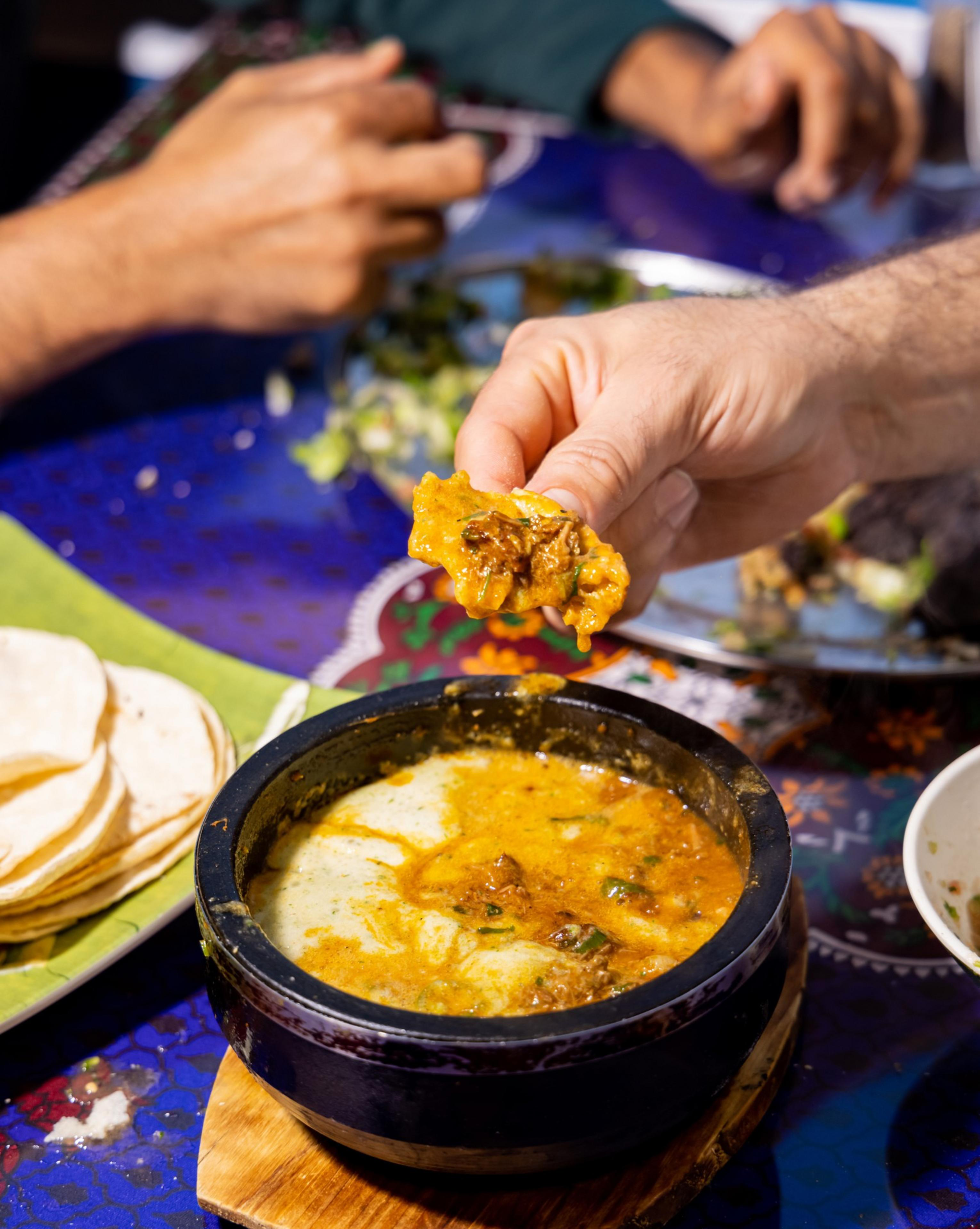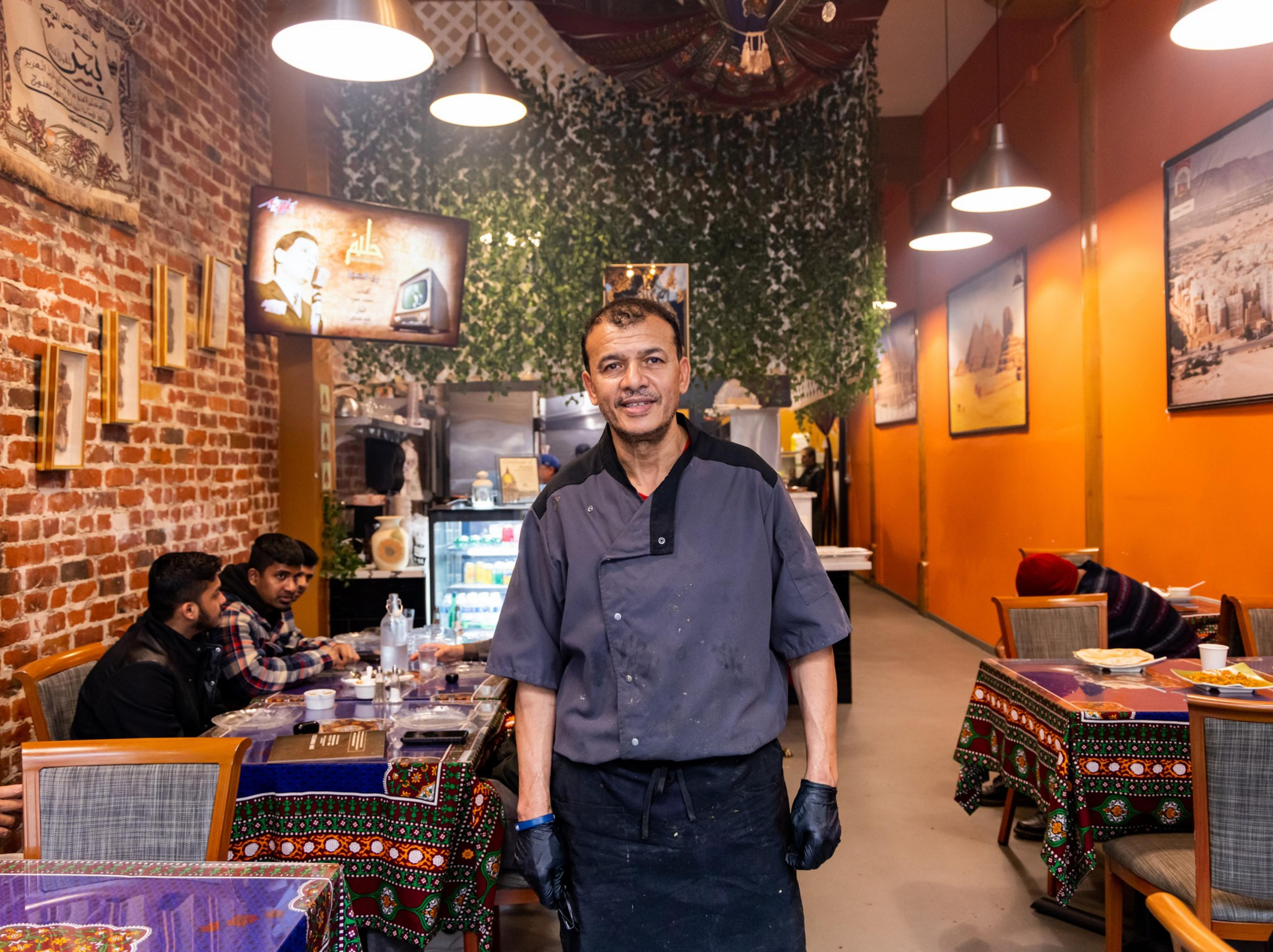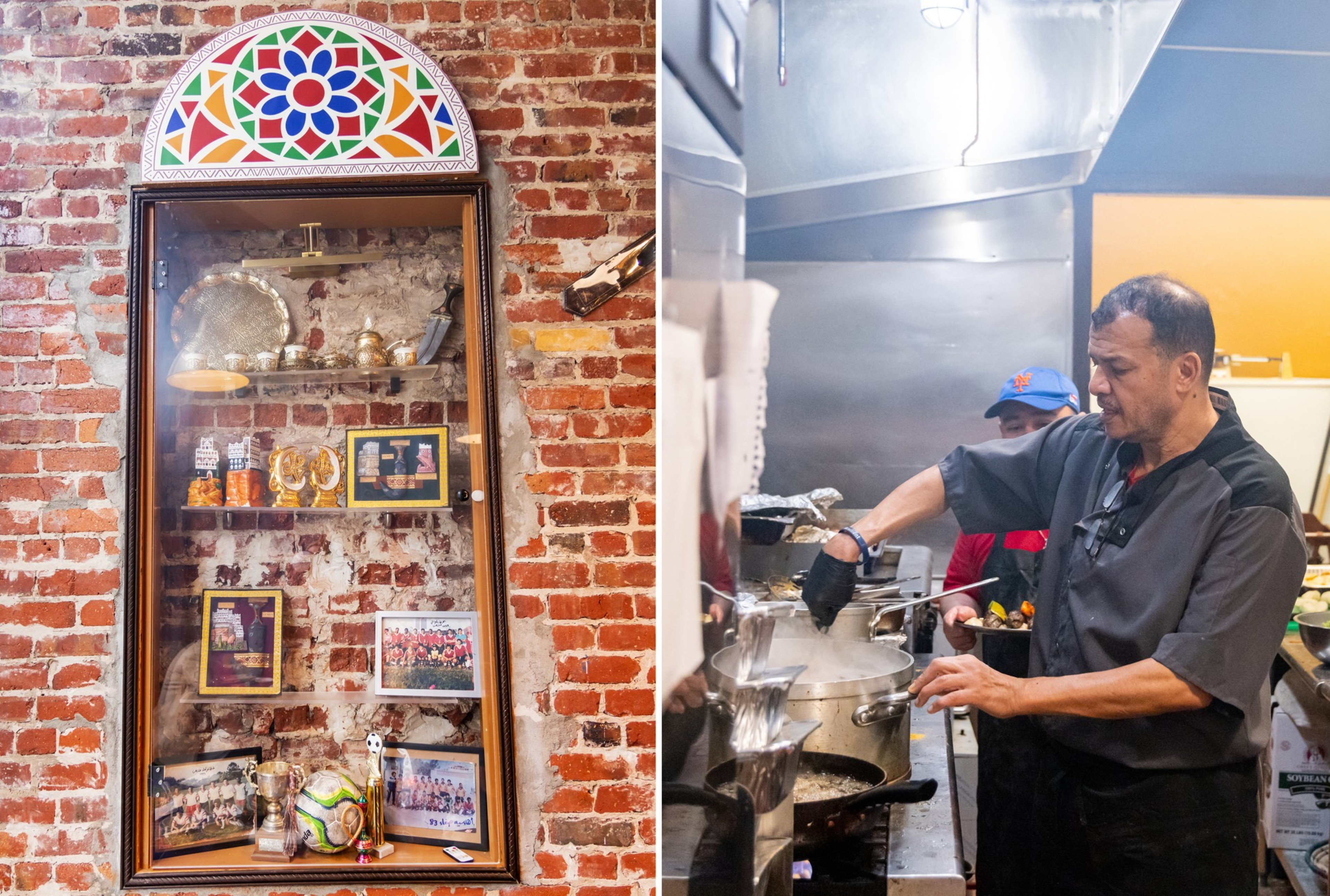You’d think you should prioritize ordering a kebab at Yemeni Kebab & Mediterranean, which opened a couple of months ago in the Tenderloin right across from The Warfield Theater.
But in my humble opinion, the first point of sale should be lamb saltah ($18), a comforting, two-alarm spicy stew that is a part of Yemen’s culinary soul. Traditionally, it is made with a variety of meats or seafood (I’m forever team lamb), plus tomatoes, chiles, potatoes, maybe okra, sometimes egg, and topped with a sauce called hulbah, made of ground fenugreek, cilantro, and serranos, blended until it becomes a foam. Bitter in an addictive way, hulbah is what takes the saltah to another level.


Like an American, apparently, I wait for the bubbling-hot stew to cool down so as to not obliterate my tongue. But owner Abdul AlRammah — who opened his other Tenderloin restaurant, Yemen Kitchen (opens in new tab), almost a decade ago — says that back home, there is no waiting around like a wimp. A few people (“especially men”) circle the boiling bowl and, “with the heat plus the spice, they race to see who can eat more.”
AlRammah’s saltah is big enough for two or three. It should be enjoyed with the large, made-to-order flatbread ($3), which comes out of a clay oven both crackery and soft, with just a breath of sweetness — the perfect bland foil for all the deep flavor. You’re also going to want it for swiping up ful medames ($14), a dish of braised fava beans that is traditionally served for breakfast.
Of course you should also try the Yemeni kebab ($18), made with ground beef and lamb mixed with cumin, chopped onion, and cilantro. Or maybe the chicken kabsa ($23), a rice dish that’s a bit like an Indian biriyani, served with a pico-de-gallo-ish side made of fresh tomatoes, serranos, onions, and cilantro.
A former Yemen soccer star who has been cooking in the U.S. for decades, AlRammah has his memorabilia on display. Though today, much of the area’s Yemeni population is in the East Bay and Fresno, his immediate community is in the neighborhood — and he lives just a couple of blocks away. “Many [Yemeni] families have lived in the Tenderloin for some 40 years,” he says.


He embraces the chaos of the neighborhood with grace. On one afternoon, with Celine Dion on the soundtrack, the clientele is a flavorful stew of its own: a guy living out of his backpack who stands to loudly deliver a soliloquy about the good food but does not have the cash to pay for all of it (AlRammah kindly gives him baklava at 50% off); a regular who gives finance-bro vibes and sits down to some soup; a couple of tourists who say they followed their noses because the food “smelled so good”; and a Chihuahua in a powder-blue skirt.
And then there’s me, laser-focused on the saltah. AlRammah admits that restaurants are hard work, but his drive to open a second one stemmed from his love for cooking. “I love to see people that are happy when they eat,” he says. “To see their expression, it makes me happy too.”
While his first restaurant Yemen Kitchen will stay as is for a bit, he’s thinking of a change because all of his Yemeni customers have started migrating to this new location. “Maybe I’ll do fast food,” he says. “Maybe burgers or pizza or Philly cheesesteak.”
The Standard recommends:
Sharing is the best (and thriftiest) way to dine here. The below generously serves enough for two.
Lamb saltah $18
Yemini kebab $18
Flatbread $3
Egyptian lemon-mint juice $7
Total: $46
